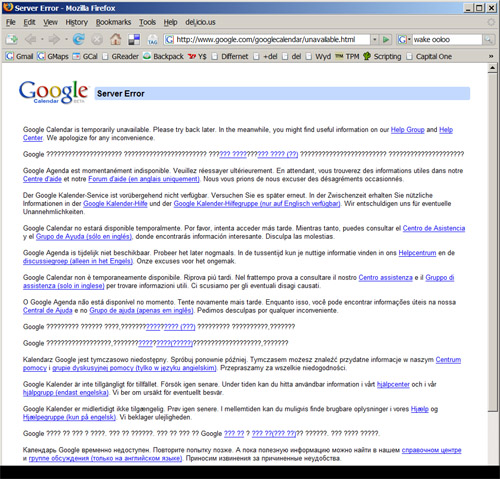We have become dependent on Google as a part of our Web infrastructure (too dependent, some say), in part because Google’s reliability record is so superb. All of which makes the receipt of any sort of error message from any dimension of the Googleverse worthy of note.
Today I tried to access my Google Calendar. Instead I saw this:
A minute later, my calendar returned. But for an instant, I got to thinking about life without Google.

